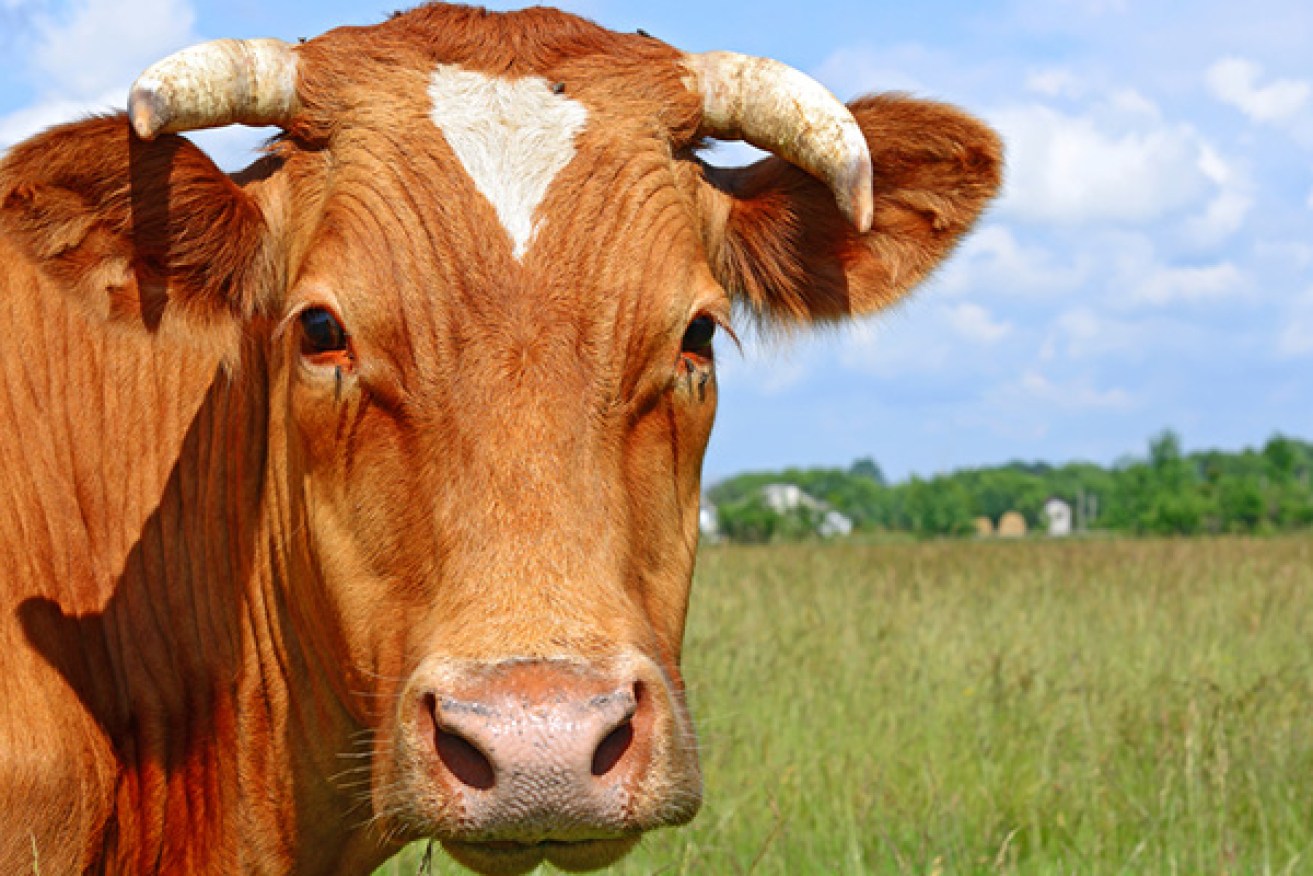Australia has itself to blame for beef cutback


While it is not yet clear why Indonesia has cut back on cattle imports from Australia, such a drastic act must give Australian policy makers pause for thought.
Is the perception of Australia and Australians now costing us in exports and jobs? Can this perception be summed up in just four words: our fear of Islam?
Four years ago Australia suspended live cattle exports to Indonesia in the wake of a shocking expose on Four Corners. The footage was graphic and many Australians were outraged.
• Labor: diplomatic tensions behind cattle cut
• PM’s risks, rewards of an early election
• The days of easy home loans are over, finally
The Government reacted quickly – perhaps too quickly – in response to public pressure.
At the same time I gave a speech to a group of Federal MPs in which a warning was raised and an alternative given.

No longer bound for Indonesia.
The warning was quite simple. Severely restricting Indonesia’s protein supply was a shot across Indonesia’s bows. Any reasonable government would have realised the threat to national food security and immediately acted to find alternative sources of protein.
Perhaps finding an alternative is what Indonesia has done. But even in 2011 a different opportunity was proffered but missed.
For Australian politicians, mired in the hate speak around refugees and the fear of Islamic terrorism, perhaps the option was too difficult. In the 2011 speech to MPs I said:
“Think of our recent beef export ban. Rather than Australia complaining about the way Indonesia kills its beasts, why don’t we expand our own Halal export industry?
“Australia already exports Halal beef to 40 neighbouring countries in trade worth over $600 million a year annually. Why don’t we work closer with Indonesia to maximise the great benefit we have from the Islamic community in Australia and expand our own Halal export industry?
“Isn’t it a new thought if we begin to think of our multicultural population as an asset not a threat? Isn’t it a new thought to look at our Islamic community as an additional benefit for trade not just culture?
“Why is it that in Australia we think of our multicultural population more often as the ‘Alan Jones threat’, not the ‘trade opportunity’?”
Was it our fear of Islam that meant we did not take up the idea of expanding our Halal export capacity to meet Indonesia’s need for protein?
Opportunities and threats don’t just exist in beef. Education students from overseas is so important to our economy that Access Economics estimates that every two international students adds one additional Australian job.
In 2011 we saw a drop of 23,000 international students in the Australian economy, then predicted to increase losses up to 75,000 international students by 2015.
Indeed it has turned true that international education has dropped from Australia’s second largest export to the fourth. How many jobs is this worth?
When we look at the market surveys undertaken by major universities we see the dollar’s value had minimal impact on the downturn. We see that visa changes have made a small impact to the high quality education product and an appropriate large impact on the low quality education product.
But a third and more depressing element shown in surveys has been a major contributor to the downturn.
As Glenn Withers said when he was at Universities Australia: “The way we are conducting the refugee population and immigration debate is creating an impression that we are unwelcoming to students and unwelcoming to visitors”.

Andrew Chan (L) and Myuran Sukumaran.
In the furore of the Prime Minister’s clumsy linking of Tsunami Aid to Chan and Sukumaran’s executions, normal Indonesians protested by offering to give the money back. In some of the photos protesters can be seen holding posters saying ‘We don’t need your education’.
They might no longer need us, but we still want them – or pay the price in jobs.
As part of Operation Sovereign Borders, taxpayers funded advertisements throughout the region aimed at asylum seekers. These ads showed a map of Australia, a red line through it and the words ‘not welcome’.
While these ads were aimed at people smugglers, why were we to believe that only people smugglers would read the message?
There is now a great shift in power globally from the European-Anglo Saxon-Christian world to the Asian-Islamic-Hindu world and Australia could be perfectly placed to maximise this.
For the first time in our history our country is in the ideal future time zone. The first time in history our country is ideally geographically placed. Tyranny of distance has been replaced with opportunity of proximity.
But have we thought that to maximise this opportunity we also need to be perceived as welcoming the ideal cultural mix? Have we realised that to maximise this opportunity we need to be trusted by all in the region, all those in the old world and all those in the new?
Is the perception of unwelcomeness meaning that we are losing trust in the region – all for fear of boats and terrorists?
Does our fear have a price in current jobs – education, tourism, beef? Is the greater cost the one of losing the opportunity of proximity?
One has to question whether Australia has fully seized the advantage of the multicultural nature of its population in exports, national income, and jobs.
But maybe our fear has run so long that we can no longer stop it.
Andrew MacLeod is the former CEO of the Committee for Melbourne, a non executive director of a US based bank and the Managing Director of Melbourne based super fund Good Super.








